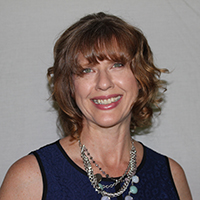I used to fall asleep so easily.
As a baby, I would sleep so soundly and for so long that my young mom felt compelled to wake me so that I could eat. The pediatrician convinced her to let me sleep, assuring her that I would wake up when hungry enough.
As a teenager, I slept in on Christmas morning, aggravating the crap out of my younger sisters.
Car rides lulled me to sleep. I’d made countless trips between Connecticut and Pennsylvania before finally being awake to see the Tappan Zee bridge.
Sleep was easy.
Sleep was a refuge.
Then perimenopause hit.
It started with insomnia the night before my period. So, okay. I could handle one night a month.
Except it got progressively worse until there were two solid weeks each month when I felt at war with sleep.
My bed became the enemy.
Seriously, just standing next to my bed before climbing in for the night filled me with dread.
I’d heard of insomnia but never really understood it. I definitely didn’t empathize with its victims.
Now I have boatloads of empathy.
My version involved just being awake. Wide, wide awake. I wasn’t worried about anything in particular (except not being able to fall asleep). My mind was just on.
I wouldn’t feel that space of drifting off. Of letting go.
I was not a candidate for sleeping pills. I’d taken one once and had those weird side effects of waking up and doing strange things without remembering I did them. No thank you.
So I tried melatonin and it sort of worked but I wasn’t thrilled with the idea of pumping my body full of extra hormones, natural or not. So, I stopped taking it.
That’s when I really couldn’t sleep.
I’d lie in bed until four in the morning after taking a nighttime sinus pill, then another two hours later a shot of ZQuil and I’d still be awake. I should’ve been in a coma.
Instead I was awake.
I tried deep breathing, progressive relaxation tapes, yoga, no caffeine, no computer after 7:00.
I tried all the tips and tricks I found while trolling the internet. Sometimes they worked, sometimes they didn’t. There was no consistency to their efficacy.
The only saving grace was that I didn’t have to get up early the next morning for a job. The added pressure of needing to fall asleep might have sent me over the edge.
As it was, I was pretty close to the edge anyway.
There’s a reason sleep deprivation is often used as a torture device.
The body never has downtime. Time to heal, rest and renew.
After a particularly bad night, I got up the next morning, found an acupuncturist online who specialized in women’s hormones and made an appointment.
I cried when I talked to her.
My nerves were frayed. My hands shook. My peripheral vision felt all wobbly.
I saw her regularly for about seven months as the insomnia slowly eased.
I can’t pinpoint the exact turning point. It was a gradual process. I also can’t credit it all to acupuncture. I began incorporating a variety of things into my daily life and they all worked toward balancing my energies.
Treating insomnia is similar to treating weight loss. Not every diet works for every body. It’s been an intuitive process for me, a process that required me to be mindful of my body, thoughts and habits.
Here is what worked for me:
1. Acupuncture
Each visit felt like a combination healthcare and life coaching. She didn’t just treat the insomnia but all aspects of my life. It was a very holistic approach that felt right to me.
2. Meditation
I’ve resisted sticking to a consistent meditation practice for years, despite all the known benefits. Now, I sit for at least five minutes if not 15-20 most mornings. I feel off when I don’t sit. It calms my mind and my spirit and is a soothing way to ease into my day.
3. Reduced Caffeine and Sugar
I am a complete lightweight when it comes to caffeine. I rarely drink coffee. One small cup leaves me wired well into the night.
My drink of choice was chai. Between the caffeine and sugar, I realized I was not doing myself any favors. Then I noticed I was consuming much more sugar than I was aware of. A bowl of mini chocolates sat in a bowl in the dining room, easily accessed every time I walked by. I had also gotten into the habit of eating a chocolate covered coconut ice cream bar each night after dinner.
So…no more bowls of chocolate.
Fruit instead of ice cream for dessert.
Maybe two chai drinks in a month rather than three in a week.
4. Yoga
I practice 10-12 hours a week, both at home and at my studio.
I realize not everyone can devote that kind of time but I am also a yoga teacher, so the more I practice, the better I teach.
Beyond that benefit, yoga smooths out all of my rough edges, removing stagnant energy stuck in my body and emotions. Just rolling out my mat evokes a noticeable level of calm. After practicing, I carry that calm with me throughout the day and into the night.
5. Writing
I write most days: morning pages, writing practice, my current novel or story, pieces for elephant journal, posts for my own blog. I write. A lot.
I used to want to write, but for whatever reason, didn’t actually write much.
It takes a lot of energy to not write, to suppress or ignore that desire. I think that energy got trapped, circulating inside me, leaving me both restless and drained.
As the Gospel of Thomas says,
“If you bring forth what is within you, what you bring forth will save you. If you do not bring forth what is within you, what you do not bring forth will destroy you.”
Once I began writing regularly, that energy was released. Bringing forth my gift helped save me from the badlands of insomnia.
Plus, writing daily purges my mind of all the garbage that piles up there.
It’s been almost a year since I made that tearful phone call to the acupuncturist.
Throughout this journey I’ve learned to trust my intuition.
To trust that I know what is best for me.
To trust that I know how to care for myself—body, mind and spirit.
And for the most part I sleep like the baby I used to be—soundly, deeply and easily.
Love elephant and want to go steady?
Sign up for our (curated) daily and weekly newsletters!
Editor: Travis May
Photo: Lisa Rosario via Flickr


 Share on bsky
Share on bsky





Read 0 comments and reply